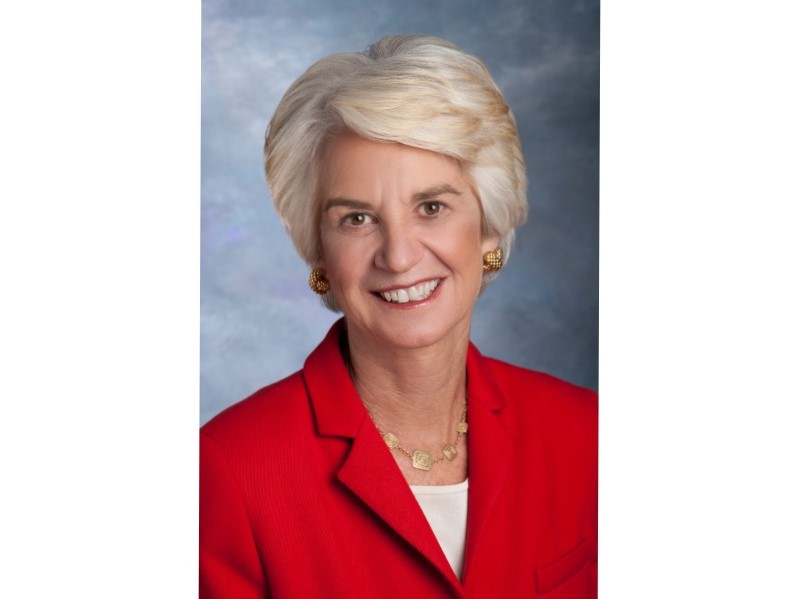If the name is familiar, there’s good reason. Kathleen Kennedy Townsend, is the eldest child—there were eleven—of the late Robert F. Kennedy, former U.S. Senator from New York, and she is a niece of the 35th President of the United States, the late John F. Kennedy. But her contributions to the people of this country reach far beyond the branches on her family tree.
Townsend, lieutenant governor of Maryland from January 1995 to January 2003, is a pioneer against family violence and substance abuse and is a formidable advocate for criminal juvenile justice; after-school opportunities; children, youth and family; and the incorporation of service and volunteerism into schools.
Townsend speaks on “The Courage to Care, the Strength to Serve,” at 11 a.m. Tuesday, April 24, as the keynote for Elizabethtown College’s Scholarship and Creative Arts Days.
The free presentation is in the College’s Gibble Auditorium.
“Caring is not easy. It’s not just a little thing you do,” she said in a phone interview from her home in Maryland. “Caring takes a gut feeling. It’s listening, paying attention and understanding.”
This ‘courage to care’ happens, she said, when you engage, when you step away from your own life.
Caring is not easy. It’s not just a little thing you do.”
“It also takes strength to serve. If you are going to serve, you can’t do something that is just convenient,” she added, noting that, as founder and director of the Maryland Student Service Alliance, she spent seven years getting schools to require that kids perform 75 hours of service work—with preparation and reaction—at the middle and high school level. Boards of education and the Wall Street Journal opposed the program, she said.
But she pushed on.
There are so many organizations and personal projects with which students can be involved, she said. Tutoring, Special Olympics, cleaning up a stream, raising money for a charity, advocacy, political campaigning. “I know students who saved a cemetery from development,” she said.
Along with service in schools comes the fight against juvenile crime, she said, chuckling at her moniker the “Crime-Fighting Czar.” She had reporting to her, as lieutenant governor, the Maryland State Police, the Department of Corrections, Juvenile Justice and Crime Control and Prevention. “We had to reduce crime in the hot spots—35 high-crime communities. We asked what would work in each of these hot spots.”
Addressing those specific issues, reduced crime by 35 percent over three years. With that success, they doubled that number, choosing 70 high-crime areas that had strong community leaders and families. “Those who have children are more apt to have an investment in the community,” she said. “We put parole and probation officers right on the streets. We put money into lights and community reconfiguration with one-way streets.”
Townsend said their efforts also were concentrated on ‘one-stop shopping,’ so to speak, where parents could deal with family problems all in one place. “Many families have issues, and they are dealt with in different parts of the government—social services, school system, juvenile justice. It’s the same family, but none of the organizations were talking to each other.” She brought the organizations together to see them as “a family rather than as individual cases,” she said.
In the past 10 years, Townsend has worked outside the government.
She founded the Center for Retirement Initiatives at the McCourt School of Public Policy at Georgetown University where she is now a research professor. The initial focus of the Center is to help states plan and implement policies and programs that make it easier for people who have little access to pension plans to save for their senior years, in an efficient and cost effective manner—utilizing pooled, professional asset management. She focuses on the disturbing concept that 50 percent of Americans don’t have anything beyond social security for their retirement. “That’s around $14,000 a year,” she said.
Townsend is an appointed member of the Maryland Small Business Retirement Savings Board, tasked two years ago with implementing the new state sponsored retirement plan.
She is an honors graduate of Harvard University and earned her law degree from the University of New Mexico, where she was a member of the law review. She has received 14 honorary degrees and is a member of the bar in Maryland, Connecticut and Massachusetts.
In her time away from government and academia, Townsend spends time with her family. She lives in Baltimore County, with her husband, David, a professor at St. Johns’ College in Annapolis, Maryland. They have four daughters and five grandchildren—two are twins. She also enjoys skiing, riding, walking and sailing.


